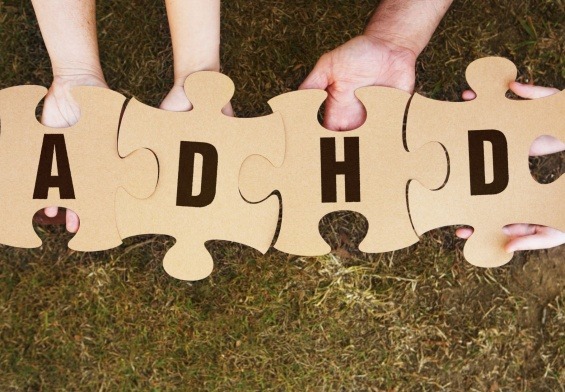You love your child more than anything. But you are tired in a way that sleep doesn’t fix. You may feel guilty for even thinking, “I can’t do this much longer.” If that sounds familiar, you might be dealing with caregiver burnout.
Burnout is common in parents of autistic children, but people rarely talk about it.
Feeling overwhelmed does not mean you are a bad parent. It means you have been carrying a very heavy load for a very long time.
This article explains what caregiver burnout is, how it looks for autism parents, and what warning signs to watch for.
What Is Caregiver Burnout?
Caregiver burnout is long-term stress that has gone too far.
It is more than one bad day or a rough week. It happens when:
- The demands on you are constant
- You feel you can never fully rest
- You don’t get enough support or breaks
Parents of autistic children often:
- Provide constant supervision
- Plan around sensory needs and meltdowns
- Fight for services, school support, and appointments
- Manage behavior plans, therapies, and schedules
Over time, your brain and body can feel worn down.
You may still love your child deeply, but feel like you have nothing left to give.
Normal Stress vs Burnout: Key Differences
All parents feel stressed at times. That is normal.
Burnout is more intense and does not go away with a short break or one good night of sleep.
Here is a simple comparison:
| Area | Normal Parenting Stress | Caregiver Burnout |
| Energy level | Tired some days, better after rest or a weekend | Exhausted most of the time, even after sleep or time off |
| Mood | Irritable during hard moments, then mood improves | Irritable or low nearly every day |
| Sleep | Occasional bad nights | Ongoing trouble falling or staying asleep, racing thoughts |
| Enjoyment of time with child | Still has fun moments with child | Struggles to enjoy time together, feels numb or detached |
| Recovery after a break | Feels refreshed after a short break | Breaks do little; tired and overwhelmed return quickly |
| Outlook | Believes hard phases will pass | Feels stuck, hopeless, or like nothing will change |
If the “burnout” column feels like your daily life, it’s a signal that you need help and support, not judgment.
Early Physical Warning Signs of Burnout
Your body often tells the truth before your mind can.
Physical signs can include:
- Constant tiredness
You wake up drained even if you slept. - Frequent headaches or stomachaches
Pain shows up with no clear medical cause. - Body aches and tension
Your neck, shoulders, or back always feel tight. - Changes in appetite
You eat much more or much less than usual. - Sleep problems
You cannot fall asleep, wake often, or dread the next day. - Getting sick more often
Colds, infections, or other illnesses seem more frequent.
If you always feel like your body is running on “low battery,” that’s not just being “a little tired.” It may be a sign of burnout.
Emotional and Mental Warning Signs
Burnout does not only affect your body. It also affects how you feel and think.
Common emotional signs:
- Feeling numb or “checked out”
You go through the motions but feel disconnected inside. - Increased irritability or anger
Small things set you off. You yell or snap more than you want to. - Crying easily
Tears come quickly over things that never used to bother you. - Heavy guilt
Thoughts like “I’m failing my child” or “I should be stronger” loop in your mind. - Loss of interest
You don’t enjoy hobbies, friends, or activities you used to like. - Racing thoughts or constant worry
Your mind never feels quiet. You are always planning, fearing, or fixing something.
These feelings can sneak up slowly. You may not notice how much has changed until you look back and realize, “I haven’t felt like myself in a long time.”
Behavioral and Relationship Warning Signs
Burnout also shows up in how you act, especially with the people closest to you.
You might notice:
- Snapping more often
You yell at your child or partner, then feel guilty and ashamed. - Avoiding people
You ignore messages or cancel plans because it feels like too much. - Escaping into screens, food, or substances
You scroll for hours, overeat, or drink more than before just to “turn off” your brain. - Putting off important tasks
Forms, school emails, and calls pile up. You feel frozen instead of lazy. - Feeling resentful
Thoughts like “Why is this all on me?” or “No one else understands” become common. - More tension at home
Arguments with your partner or family increase. Everyone seems on edge.
These are signs of overload, not signs that you are a bad person. They are signals that your nervous system needs care and support.
Why Parents of Autistic Children Are at Higher Risk
Any parent can burn out. But parents of autistic children face unique pressures.
You might be:
- Managing more appointments and therapies than most families
- Learning complex systems: IEPs, school meetings, service agencies
- Worrying about safety more than other parents
- Handling public judgment during meltdowns or stimming
- Getting very little sleep due to your child’s sleep issues
- Trying to understand and meet intense sensory and routine needs
- Feeling like you must be a parent, therapist, teacher, and advocate all at once
All of that would be hard for anyone.
If you feel like you’re “on” 24/7, it makes sense that your brain and body are worn down.
Guilt, Shame, and the “I Should Be Stronger” Trap
Many autism parents carry a heavy load of guilt.
Common thoughts:
- “Other parents seem to manage, so why can’t I?”
- “If I take a break, I’m selfish.”
- “If I admit I’m struggling, people will think I don’t love my child.”
These thoughts keep you from asking for help. They also make burnout worse.
Here’s the truth:
- Feeling tired or overwhelmed does not mean you love your child less.
- Taking breaks does not mean you are selfish.
- Asking for help is a sign of strength, not weakness.
You are a human being, not a machine. Your child needs you to be as healthy as you can be, mentally and physically.
Practical Ways to Protect Yourself from Burnout
You may not be able to change your child’s needs or the system around you.
But small steps can still help your body and mind.
Try some of these ideas:
1. Use “Micro-Breaks”
You may not get hours off, but even 5–10 minutes matter.
- Sit down, breathe slowly, and do nothing for a few minutes.
- Step outside for fresh air.
- Listen to a short song that calms you.
2. Lower the “Perfect Parent” Bar
You do not have to:
- Make every meal from scratch
- Respond to every email the same day
- Do every therapy activity every single day
Sometimes “good enough” really is enough.
3. Create Simple Routines and Visuals
- Use visual schedules for your child so you don’t have to give verbal directions all day.
- Keep mornings and bedtimes as predictable as possible.
- Use timers to help transitions instead of constant reminders.
These tools reduce the mental load you carry alone.
4. Build a Support Network
Support may not look perfect, but even small connections help.
- Join online or local support groups for autism parents.
- Trade short breaks with another parent if possible.
- Ask family or friends for specific help (meal, school run, short visit).
People often want to help but don’t know what you need. Being specific makes it easier for them to say yes.
5. Share the Load When You Can
If you have a partner or co-parent:
- Make a list of tasks and divide them more fairly.
- Take turns being “on duty” in the evenings or on weekends.
If you don’t:
- See if anyone you trust can learn part of your child’s routine.
- Look into respite care or community programs if they are available.
Even short, regular breaks are better than one big break once a year.
When to Seek Professional Help
Sometimes, burnout reaches a point where you need professional support.
This is not failure. It’s care.
You should talk to a doctor or mental health professional if:
- You feel sad or hopeless most days
- You think, “My family would be better off without me”
- You use alcohol, drugs, or self-harm to cope
- Panic attacks or severe anxiety make daily tasks hard
- You cannot sleep for long periods because of worry, even when you have the chance
People who can help include:
- Your primary care doctor
- A therapist or counselor (individual, couples, or family)
- A psychiatrist, if medication might be helpful
You can say something like:
“I’m caring for a child with autism, and I feel burned out most days. I’m tired, irritable, and not myself. I need help coping.”
You deserve support just as much as your child does.
What If You’re Parenting Alone?
Single parents or parents with very little family support face extra challenges.
If this is you:
- You may have no backup when you are sick or exhausted.
- Money, time, and energy may feel stretched beyond the limit.
Some ideas that may still help:
- Join online groups for autism parents. They can offer tips, empathy, and a place to vent.
- Ask the school, clinic, or local agencies if there are parent support programs.
- Use small, realistic routines for your own care:
- 5 minutes of stretching
- Drinking water regularly
- Going to bed a bit earlier when you can
Small acts of care add up over time.
Key Takeaways
- Caregiver burnout is common in parents of autistic children and goes beyond normal stress.
- Warning signs show up in your body, mood, behavior, and relationships.
- Parenting a child with autism can bring extra pressure, and needing help does not mean you are weak.
- Small changes—like micro-breaks, lower expectations, and shared tasks—can ease the load.
- If you feel hopeless, unsafe, or unable to cope, it is important to reach out to a doctor or mental health professional.
- Caring for yourself is not selfish. It is one of the most important ways you care for your child.




